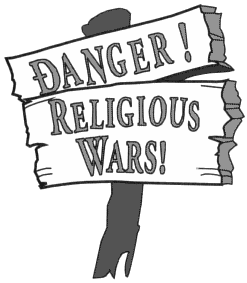Religious War
Oct. 15th, 2018 09:28 am A religious rift widened last week, as Orthodox Christianity’s highest spiritual authority, based in Istanbul, firmly asserted its jurisdiction—and rejected Russia’s—over Ukrainian church affairs.
A religious rift widened last week, as Orthodox Christianity’s highest spiritual authority, based in Istanbul, firmly asserted its jurisdiction—and rejected Russia’s—over Ukrainian church affairs. This marks an escalation of a dispute which in recent weeks has been presented in Moscow, by officials of church and state alike, as portending one of the biggest splits in Christendom for centuries. In the American State Department, meanwhile, there are concerns that the argument could lead to physical violence.
After a three-day meeting in Istanbul of bishops under the immediate authority of Patriarch Bartholomew I (pictured), the “first among equals” in the eastern Christian world, a series of measures was announced which would go a long way towards meeting the aspiration of Ukraine’s head of state and parliament for an independent national church. Hailing the decisions made in Istanbul, Ukraine’s president, Petro Poroshenko, declared: “This is a great victory of the God-loving Ukrainian people over the Moscow demons; the victory of good over evil; the victory of light over darkness.”
However, he stressed that Ukraine would remain a land of religious freedom, implying that people would still be free to worship in churches aligned with the Patriarchate of Moscow, as are at present the majority of the country’s Orthodox parishes.
In its boldest move, the Istanbul-based synod formally rehabilitated two Ukrainian prelates who had been excommunicated by the Patriarchate of Moscow and are seen as key figures in the establishment of a legitimate national church in Kiev. One is Filaret Denysenko, who styles himself the “Patriarch of Kiev”, although the title has not been recognised internationally. The other is Makariy Maletich, head of a smaller independent Orthodox body. The 88-year-old Filaret was a senior figure in the Russian Orthodox church before he defied his Muscovite masters and broke away in 1992.
The decision announced in Istanbul stops short of recognising the existence of a Kiev Patriarchate, but it restores the two breakaway prelates to their full priestly rank and their followers to full communion with the church. When, as now seems certain, an autocephalous (self-governing) independent Ukrainian church is formally constituted, a new leader will presumably be elected by a gathering of bishops. It is not certain who that leader will be nor what rank he will have.
In another challenge to Moscow, the Istanbul-based Patriarchate of Constantinople formally withdrew the 1686 decision which gave Moscow some authority over the metropolitan see of Kiev.
That in effect signals that Constantinople does not regard Ukraine, even provisionally, as Moscow’s canonical territory. It also runs directly counter to the Muscovite version of church history. From Moscow’s point of view, the see of Constantinople is interfering in its historical territory.
Among secular observers, one of the greatest worries is that a change in Ukraine’s religious regime could lead to physical altercations over control of the country’s places of worship, which include some of the most magnificent cathedrals and monasteries in the Christian east, in Kiev in particular.
The Istanbul-based synod’s announcement includes an “appeal to all sides involved that they avoid appropriation of churches, monasteries and other properties, as well as every other act of violence and retaliation, so that the peace and love of Christ may prevail.”
After the synod’s announcement Kurt Volker, America’s envoy to Ukraine, said, “I hope there are not protests and violence orchestrated as a result of this decision. I think it would be tragic to see that.”
Patriarch Kirill of Moscow is expected to announce a draconian response to this week’s moves over Ukraine after a meeting of his bishops on October 15th. His counter-measures could include a complete severance of relations with the Patriarchate of Constantinople and a call on other national Orthodox churches to follow suit.






